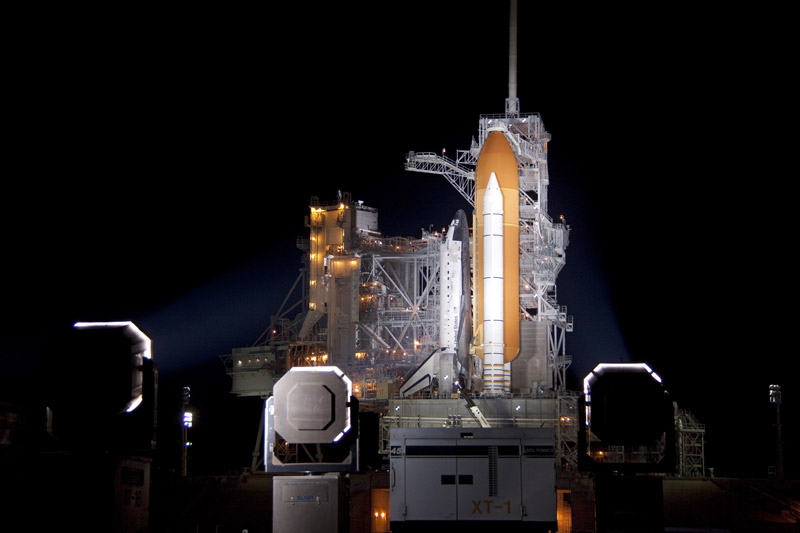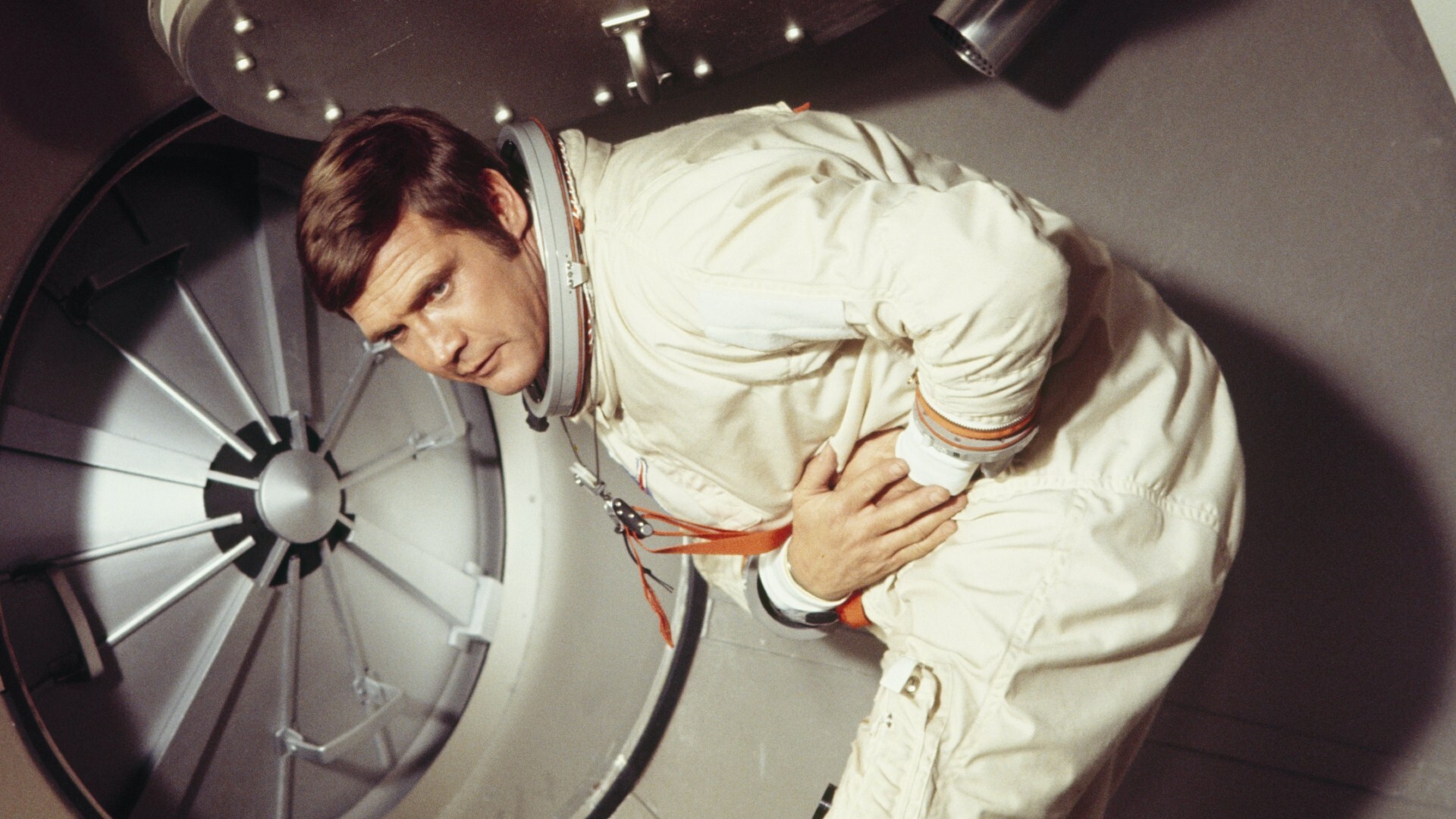NASA Postpones Shuttle Discovery Launch to Nov. 30 for Repairs

Breaking space news, the latest updates on rocket launches, skywatching events and more!
You are now subscribed
Your newsletter sign-up was successful
Want to add more newsletters?

Delivered daily
Daily Newsletter
Breaking space news, the latest updates on rocket launches, skywatching events and more!

Once a month
Watch This Space
Sign up to our monthly entertainment newsletter to keep up with all our coverage of the latest sci-fi and space movies, tv shows, games and books.

Once a week
Night Sky This Week
Discover this week's must-see night sky events, moon phases, and stunning astrophotos. Sign up for our skywatching newsletter and explore the universe with us!

Twice a month
Strange New Words
Space.com's Sci-Fi Reader's Club. Read a sci-fi short story every month and join a virtual community of fellow science fiction fans!
This storyhas been updated at 2:45 p.m. EDT.
CAPE CANAVERAL, Fla. ? A fuel leak and crack on the spaceshuttle Discovery's huge external tank has forced NASA to call off any attemptsto launch before Nov. 30 ? the latest in a series of delays for thespacecraft's final voyage.
NASA discovered the crack during an inspection after findinga potentially dangerous liquid hydrogen fuel leak on the 15-story external tankthat thwartedthe shuttle's launch plans for today (Nov. 5). The crack is located in theinner foam on a different part of the tank than the fuel leak.
"There's about a seven-inch long crack with what wecall an offset, which means it's cracked and moved a little bit," MikeMoses, NASA's shuttle integration manager, said in a news briefing. "Thatgives a place for ice to form, and that's not something we like to see. I don'tknow if that would have passed our criteria to be 'go' for launch, but itcertainly would have been something that would have generated a whole lot ofdiscussion."
NASA must repair the fuel leak andfoam crack before Discovery can blast off toward the International SpaceStation. That means the next possible time the shuttle can try to launch isNov. 30 at 4:05 a.m. EST (0905 GMT).
Details about the extent of the crack, and what it will taketo repair it, remain unknown at the moment. In the meantime, NASA officials arepressing ahead with the Nov. 30 timeline ? though the date of the next officiallaunch attempt will be contingent on the necessary repair work. [GRAPHIC:NASA's Space Shuttle ? From Top to Bottom]
"We have a lot to do before we actually settle in on anew launch date," Moses said. "We're going to make sure we fix theproblems and then worry about the launch date later. So, November 30 is thefirst time the window opens, and I can't commit to saying that's exactly whenwe're going to launch, but that's what we're going to start setting schedulesfor."
Breaking space news, the latest updates on rocket launches, skywatching events and more!
Discoverywas slated to launch at 3:04 p.m. EDT (1904 GMT) today from a seaside pad hereat the Kennedy Space Center before the fuel leak was discovered. The leak posedan explosion risk at the launch pad.
The mission had already beendelayed four days due to minor gas leaks, an electrical glitch and, mostrecently, uncooperative weather. NASA had until Nov.8 to launch Discovery on its mission to the International Space Station beforethe sun angles at the station would become unfavorable.
Discovery's STS-133 crewmembers will head back to theJohnson Space Center in Houston today.
The hydrogen gas leak was detected at around 7:30 a.m. EDT(1130 GMT) in a location known as the Ground Umbilical Carrier Plate, which isan attachment point between the external tank and a 17-inch pipe that carriesgaseous hydrogen safely away from the shuttle to the flare stack, where it isburned off. [Photoof the shuttle fuel leak location]
Similar leaks have occurred during launch preparations fortwo previous shuttle missions, both in 2009. Both of these were caused bymisalignment of seals within the Ground Umbilical Carrier Plate. This new leak,however, cropped up earlier in the tanking process, and leaked significantlygreater amounts of hydrogen, than those previous events, said NASA's shuttlelaunch director Mike Leinbach.
"The last two that we experienced were pretty much the same,"Leinbach told SPACE.com. "Because it started sooner and had a highermagnitude, it says to a lot of us that it's a different type of leak."
The external tank is now being drained of the propellant,but it will take an additional 22 hours or so to allow excess hydrogen in thatarea to be purged away before technicians can return to the pad to investigatethe cause of the leak.
"Right now it's a lot of speculation, but the hardwarewas obviously talking to us ? it was leaking significantly," Leinbachsaid. "We elected to scrub, and that was the best course of action."
Technicians discovered the leak while filling Discovery'sdistinct, orange external tank with liquid oxygen and liquid hydrogen. Thisprocedure, known as tanking, fills the external tank with the 520,000 gallonsof cryogenic propellant that will be used to fuel the shuttle during liftoffand ascent into space.
Discovery was set to fly an 11-day supply mission to theInternational Space Station to deliver a humanoid robot helper for the stationcrew and a new storage room for the orbiting lab.
The STS-133 mission will be Discovery's grand finale inspace beforebeing retired along with the rest of NASA's shuttle fleet in 2011.
"It's disappointing for the team today, for sure,"Leinbach said. "But, as we always say - and it's the truth - we're goingto fly when we're ready, and clearly we're not ready to fly today."
- GRAPHIC: NASA's Space Shuttle ? From Top to Bottom
- Gallery: Building Space Shuttle Discovery
- Video ? Space Shuttle Discovery: A Retrospective, Part 2, Part 3
Follow SPACE.com Staff Writer Denise Chow onTwitter @denisechow asshe covers Discovery's final space voyage from Cape Canaveral, Fla. Click here formission updates, new stories and a link to NASA's live webcast coverage.

Denise Chow is a former Space.com staff writer who then worked as assistant managing editor at Live Science before moving to NBC News as a science reporter, where she focuses on general science and climate change. She spent two years with Space.com, writing about rocket launches and covering NASA's final three space shuttle missions, before joining the Live Science team in 2013. A Canadian transplant, Denise has a bachelor's degree from the University of Toronto, and a master's degree in journalism from New York University. At NBC News, Denise covers general science and climate change.
